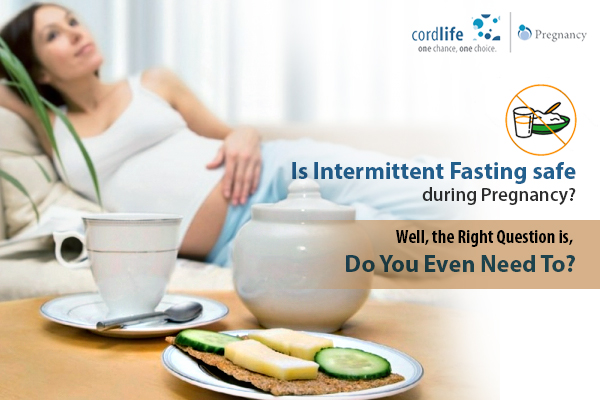Table of Contents
If you are someone who has religiously followed diets and fasted to stay trim and slim or get into shape, we’re sure this thought has already crossed your mind. As you may already know, intermittent fasting is not about a diet plan or what you eat. It is about when you eat and what you eat. In intermittent fasting, one eats only during specific times in a day. That means you can eat one meal in a couple of days or after 8 hours each day. So, when your body fasts for long periods it starts burning the fat stored since it has exhausted the sugar reserve.
We shall cut to the chase and tell you straight away that intermittent fasting is not advisable when you’re pregnant.
In normal circumstances, when you fast, the body uses up your fat reserves. This, in turn, reduces your body fat. However, when you are pregnant, a large part of your body weight is water weight, which is essential for the baby’s blood circulation, the placenta, and the amniotic fluid.
FACT: It is Not About Losing but Gaining a Few Healthy Pounds
Like we said before, you may not even need to fast as you naturally tend to cut down on your food intake during pregnancy. You see, your body will go through some significant changes in every trimester of pregnancy.
In your first trimester, your blood sugar will drop; your insulin resistance will increase. Your pancreas will start growing and producing more insulin. And while you may feel hungry, all this may make you feel nauseous. You may, like most women, develop a strong aversion to certain kinds of food and aromas (mostly foods filled with proteins and fats) and may even throw up if you eat larger portions. The only viable option will be to eat small portions of food and healthy snacks whenever you can. So, fasting when you are already hungry and feeling sick is not be a good idea.
It is that the aversion to food and nausea may reduce when you enter the second trimester. While you may be able to eat without throwing up, it is still not advisable to fast as you and your baby need the micronutrients.
Intermitting fasting during the third trimester is not at all a good idea as your belly, and calorie requirement increases during this time. You need to eat not just for yourself, but also for your baby. Now here is the catch; your belly will get compressed, and food may not digest easily. So, you will not be able to have large portions at a time. Eating small portions frequently may be the only option for you to get the proteins, fat, and nutrients that you and your baby need.
The Ill-effects of Intermittent Fasting During Pregnancy
Low Blood Sugar
During pregnancy, your blood pressure may already be lower than usual as it drops naturally. Intermittent fasting will lower your blood sugar. And if your blood pressure and blood sugar are low at the same time, it could cause dizziness and even make you faint putting you and your baby at risk.
Low Blood Pressure
When you fast, your glucose levels will drop. If your baby doesn’t get the required amount of nutrition, the foetal movement may lower, which could prove fatal.
How Do You Maintain a Healthy Weight for Each Trimester?
Ask your doctor what your ideal weight should be during every trimester and try and maintain by following these steps.
Have a Balanced Diet
Have foods rich in protein and nutrients. This includes dairy, legumes, eggs, leafy greens, berries, whole grains, dry fruits and plenty of water.
Eat Less But More Often
As you may only be able to have smaller portions of food, eat as much as you can every now and then.
Choose Healthy Snacks
Avoid processed foods and aerated drinks that are full of sugar.
Fast Overnight (If Necessary)
If you’re way above your healthy weight, you may fast for 12 hours at the most, ideally overnight. That is a good 7-8 hours of sleep plus a couple of hours before and after you go to bed.
Of course, you will have plenty of time to get into shape after you deliver. So, embrace the extra weight and bask in the pregnancy glow because, as a wise man once said, you are amazing just the way you are!
